26th Chess Olympiad
The 26th Chess Olympiad, organized by FIDE and comprising an open[1] and a women's tournament, as well as several other events designed to promote the game of chess, took place between November 18 and December 5, 1984, in Thessaloniki, Greece.
In the home country of the Olympic movement, it was business as usual. The Soviet Union, led by Beliavsky, won their third consecutive gold medals (and 15th in total), well ahead of England (helped by a Nunn in top form) and the United States. This dominance happened even in the absence of Karpov and Kasparov who were in the midst of their marathon match. In fact, for the first time in Olympic history, the Soviet team didn't feature a single world champion - past, present or future.
The only champion present in Thessaloniki was Boris Spassky who had defected and now represented France. His performance helped the French team to an unprecedented 7th-place finish, even though he drew 12 of his 14 games - an Olympic record.
After the successful 26th Olympiad in Thessaloniki in 1984, FIDE agreed to hold every other Olympiad (the ones in Olympic years) in the home country of the Olympic movement - provided the Greek Chess Federation and government could provide the necessary funding. This was only the case once, in 1986; after that the Olympiad went back to a new host city every two years.
Open event
There were 87 nations playing in a 14-round Swiss system tournament. To make for an even number of teams, the Greek hosts also fielded a "B" team. In the event of a draw, the tie-break was decided first by using the Buchholz system, then by match points.
Open event # Country Players Average
ratingPoints 1  Soviet Union
Soviet Union Beliavsky, Polugaevsky, Vaganian, Tukmakov, Yusupov, Sokolov 2610 41 2  England
England Miles, Nunn, Speelman, Chandler, Mestel, Short 2556 37 3  United States
United States Dzindzichashvili, Kavalek, Christiansen, Browne, Alburt, De Firmian 2553 35 # Country Average
ratingPoints Buchholz 4  Hungary
Hungary 2596 34½ 5 .svg.png) Romania
Romania 2470 33 6  West Germany
West Germany 2516 32½ 445.0 7  France
France 2485 32½ 442.0 8  Yugoslavia
Yugoslavia 2561 32 457.5 9 .svg.png) Bulgaria
Bulgaria 2470 32 447.5 10  Netherlands
Netherlands 2574 32 446.0 11  Cuba
Cuba 2473 32 444.5 12  China
China 2433 32 429.0 13  Israel
Israel 2468 32 425.5 14  Argentina
Argentina 2401 32 423.5 15  Iceland
Iceland 2514 31½ 450.0 16  Philippines
Philippines 2426 31½ 425.0 17  Czechoslovakia
Czechoslovakia 2555 31 435.0 18  Denmark
Denmark 2458 31 420.5 19 .svg.png) Brazil
Brazil 2410 31 418.5 20  Canada
Canada 2423 31 412.0 21  Poland
Poland 2449 30½ 418.0 22  Australia
Australia 2426 30½ 416.0 23  Chile
Chile 2423 30½ 412.0 24  Scotland
Scotland 2325 30½ 403.0 25  Sweden
Sweden 2503 30 454.5 26  Colombia
Colombia 2409 30 431.0 27  Spain
Spain 2451 30 430.5 28  Italy
Italy 2406 30 421.0 29  Indonesia
Indonesia 2398 30 413.0 30  Norway
Norway 2438 30 411.5 31  Greece
Greece 2399 30 408.0 32  Portugal
Portugal 2349 30 407.5 33  India
India 2409 29½ 420.0 34  Turkey
Turkey 2365 29½ 396.0 35  United Arab Emirates
United Arab Emirates 2286 29½ 389.5 36 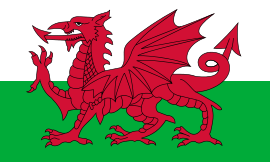 Wales
Wales 2313 29½ 382.0 37  Morocco
Morocco 2200 29½ 364.0 38  Austria
Austria 2380 29 416.5 39  Finland
Finland 2438 29 416.0 40 .svg.png) Belgium
Belgium 2324 29 414.5 41  Albania
Albania 2333 29 410.0 42  Singapore
Singapore 2324 29 407.0 43  Mexico
Mexico 2330 29 402.0 44  New Zealand
New Zealand 2293 29 392.0 45  Greece "B"
Greece "B" 2318 29 379.0 46  Egypt
Egypt 2249 28½ 403.0 47  Dominican Republic
Dominican Republic 2291 28½ 396.5 48  Tunisia
Tunisia 2278 28 49  Switzerland
Switzerland 2385 27½ 412.5 50  Malaysia
Malaysia 2285 27½ 401.0 51  Sri Lanka
Sri Lanka 2283 27½ 392.5 52 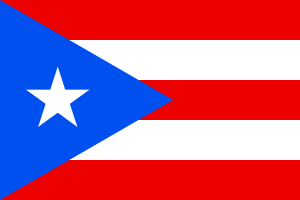 Puerto Rico
Puerto Rico 2236 27½ 380.5 53  Pakistan
Pakistan 2255 27 388.5 54  Hong Kong
Hong Kong 2274 27 375.5 55 %3B_Flag_of_Syria_(1963-1972).svg.png) Iraq
Iraq 2200 27 367.0 56  Ireland
Ireland 2230 26½ 395.5 57 .svg.png) Paraguay
Paraguay 2275 26½ 392.5 58  Algeria
Algeria 2201 26½ 384.5 59  Cyprus
Cyprus 2226 26½ 368.5 60  Uganda
Uganda 2203 26½ 332.5 61  Thailand
Thailand 2271 26 389.5 62  Bangladesh
Bangladesh 2280 26 388.5 63 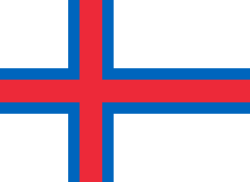 Faroe Islands
Faroe Islands 2229 26 382.5 64 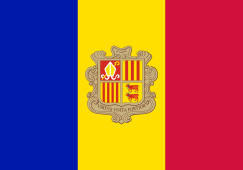 Andorra
Andorra 2203 26 370.0 65  Malta
Malta 2230 26 364.0 66  Lebanon
Lebanon 2226 26 362.5 67 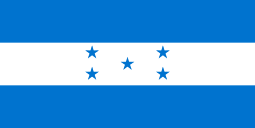 Honduras
Honduras 2200 26 355.5 68  Luxembourg
Luxembourg 2215 25½ 373.0 69 .svg.png) Bahrain
Bahrain 2201 25½ 314.0 70 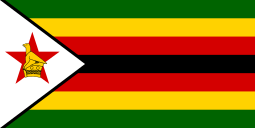 Zimbabwe
Zimbabwe 2234 25 383.0 71 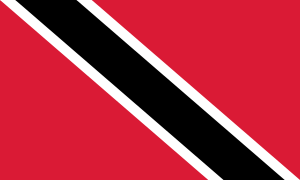 Trinidad and Tobago
Trinidad and Tobago 2203 25 368.0 72  Nigeria
Nigeria 2201 25 355.0 73  Suriname
Suriname 2200 25 346.5 74 .svg.png) Libya
Libya 2200 25 326.0 75  Kenya
Kenya 2201 25 324.5 76  Jordan
Jordan 2203 24½ 351.5 77 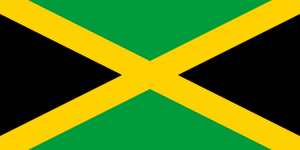 Jamaica
Jamaica 2205 24½ 333.0 78  Angola
Angola 2200 24 355.5 79 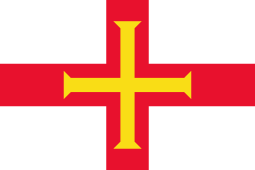 Guernsey and
Guernsey and 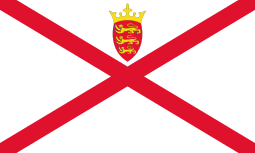 Jersey
Jersey 2201 24 352.0 80 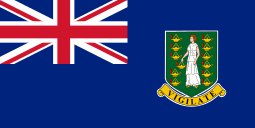 British Virgin Islands
British Virgin Islands 2218 24 342.0 81  Papua New Guinea
Papua New Guinea 2203 24 331.5 82  Japan
Japan 2200 23½ 83  United States Virgin Islands
United States Virgin Islands 2215 21½ 84  Monaco
Monaco 2201 21 85  Bermuda
Bermuda 2208 17½ 86 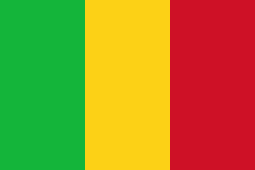 Mali
Mali 2200 17 87 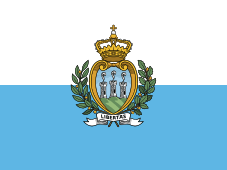 San Marino
San Marino 2200 16 88 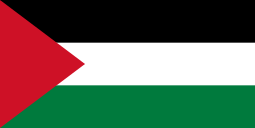 Palestine
Palestine 2200 13
Individual medals
For the first time, in addition to the performance awards on each board, a special award was given to the best overall performance rating.
- Performance rating:
 John Nunn 2868
John Nunn 2868 - Board 1:
 Craig Van Tilbury 9½ / 11 = 86.4%
Craig Van Tilbury 9½ / 11 = 86.4% - Board 2:
 John Nunn 10 / 11 = 90.9%
John Nunn 10 / 11 = 90.9% - Board 3:
 Rafael Vaganian 8½ / 10 = 85.0%
Rafael Vaganian 8½ / 10 = 85.0% - Board 4:
 Pricha Sinprayoon 8 / 10 = 80.0%
Pricha Sinprayoon 8 / 10 = 80.0% - 1st reserve:
 Dewperkash Gajadin,
Dewperkash Gajadin,  József Pintér,
József Pintér,  Javier Ochoa de Echagüen, and
Javier Ochoa de Echagüen, and  Jonathan Mestel 7 / 9 = 77.8%
Jonathan Mestel 7 / 9 = 77.8% - 2nd reserve:

 Gorden Comben and
Gorden Comben and  Marios Schinis 7½ / 10 = 75.0%
Marios Schinis 7½ / 10 = 75.0%
Women's results
50 nations took part, and with the Greek hosts also fielding a "B" side, the total number of teams came to 51. In the event of a draw, the tie-break was decided first by using the Buchholz system, then by match points.
Like the open event, the women's tournament was dominated by the Soviet Union, captained by world champion Chiburdanidze, who won the gold medals by an impressive 5½ points. Bulgaria and Romania took silver and bronze, respectively.
# Country Players Average
ratingPoints 1  Soviet Union
Soviet Union Chiburdanidze, Levitina, Gaprindashvili, Semenova 2335 32 2 .svg.png) Bulgaria
Bulgaria Voiska, Gocheva, Chilingirova, Savova 2105 27½ 3 .svg.png) Romania
Romania Mureşan, Polihroniade, Nuţu, Olăraşu 2180 27 # Country Average
ratingPoints Buchholz 4  West Germany
West Germany 2232 26 340.5 5  China
China 2098 26 335.0 6  Hungary
Hungary 2218 25 7  Poland
Poland 2227 24½ 345.5 8  England
England 2137 24½ 336.0 9  Yugoslavia
Yugoslavia 2162 24 340.5 10  Spain
Spain 2055 24 330.0 11  Netherlands
Netherlands 2075 23½ 346.5 12  Switzerland
Switzerland 2072 23½ 316.5 13  United States
United States 2077 23½ 316.0 14  Cuba
Cuba 2092 23½ 303.0 15  Sweden
Sweden 2143 23 16  India
India 2018 22½ 17  Canada
Canada 2020 22 316.5 18  France
France 1985 22 308.5 19 .svg.png) Brazil
Brazil 1963 22 303.5 20  Scotland
Scotland 1908 22 299.5 21  Portugal
Portugal 1800 22 250.0 22  Colombia
Colombia 1913 21½ 311.0 23  Wales
Wales 1953 21½ 301.5 24  Denmark
Denmark 1855 21½ 288.0 25  Dominican Republic
Dominican Republic 1800 21½ 257.5 26  Norway
Norway 1800 21½ 244.5 27  Greece
Greece 1988 21 316.5 28  Iceland
Iceland 1873 21 301.5 29  Italy
Italy 1903 21 292.5 30  Austria
Austria 1893 21 283.5 31  Finland
Finland 1900 21 281.0 32  Malaysia
Malaysia 1800 21 260.5 33  Indonesia
Indonesia 1855 20½ 300.5 34  Australia
Australia 1927 20½ 296.0 35  Argentina
Argentina 1955 20½ 292.0 36  Greece "B"
Greece "B" 1853 20½ 269.5 37 .svg.png) Belgium
Belgium 1800 20½ 267.0 38  Ireland
Ireland 1800 20½ 245.0 39  Mexico
Mexico 1820 20 286.0 40  New Zealand
New Zealand 1803 20 226.5 41  Japan
Japan 1915 19½ 274.5 42  Turkey
Turkey 1892 19½ 265.0 43 %3B_Flag_of_Syria_(1963-1972).svg.png) Iraq
Iraq 1800 19½ 218.0 44  Egypt
Egypt 1828 18½ 268.5 45 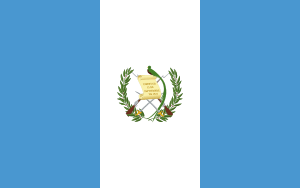 Guatemala
Guatemala 1800 18½ 253.0 46  United Arab Emirates
United Arab Emirates 1800 16½ 47  Hong Kong
Hong Kong 1800 15½ 48  Trinidad and Tobago
Trinidad and Tobago 1835 15 49  Jamaica
Jamaica 1800 10 50  Zimbabwe
Zimbabwe 1800 8½ 51  United States Virgin Islands
United States Virgin Islands 1800 3½
Individual medals
- Performance rating:
 Lidia Semenova 2505
Lidia Semenova 2505 - Board 1:
 Pia Cramling 10½ / 13 = 80.0%
Pia Cramling 10½ / 13 = 80.0% - Board 2:
 Céline Roos 9½ / 13 = 73.1%
Céline Roos 9½ / 13 = 73.1% - Board 3:
.svg.png) Jussara Chaves 9 / 10 = 90.0%
Jussara Chaves 9 / 10 = 90.0% - Reserve:
 Lidia Semenova 9½ / 10 = 95.0%
Lidia Semenova 9½ / 10 = 95.0%
References
- ↑ Although commonly referred to as the men's division, this section is open to both male and female players.
- 26th Chess Olympiad: Thessaloniki 1984 OlimpBase